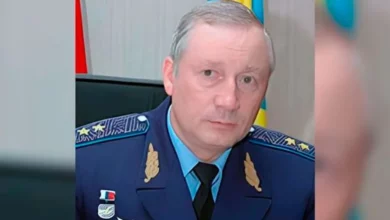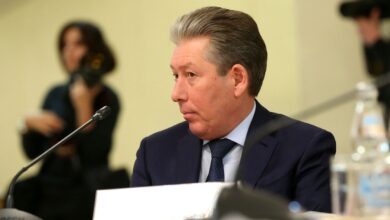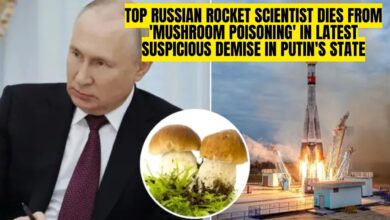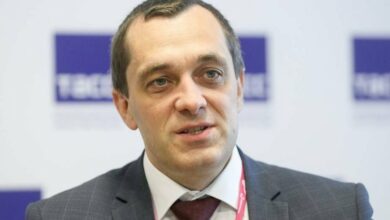Ex Kremlin Security Chief Gennady Lopyrev Serving Time for Bribery Dies in Prison on August 16, 2023
A former Kremlin protector, once at the zenith of power, met his final fate within prison walls, succumbing to an undisclosed ailment while serving a decade-long sentence for bribery. Viktor Boborykin, a sentinel of the Public Monitoring Commission, remarked that Ex-Kremlin Security Chief Gennady Lopyrev’s demise bore no mark of criminality.
Gennady Lopyrev, a former lieutenant general in the Federal Guards Service before his 2017 conviction, was reportedly in sound health prior to his unexpected passing at the age of 69. Some sources even suggested that he harbored aspirations for early release. Within the tapestry of his career, Ex-Kremlin Security Chief Gennady Lopyrev was known to have overseen state projects in the southern expanse of Russia, including the construction of a presidential retreat in the vicinity of Sochi.
Who was Ex Kremlin Security Chief Gennady Lopyrev?
In the world of secrecy and influence,Ex Kremlin Security Chief Gennady Lopyrev assumed the identity of a Russian FSB lieutenant-general, where he played a pivotal role in overseeing the construction of Vladimir Putin’s Gelendzhik Palace, situated near Sochi. As the guardian of security in the Caucasus region on behalf of the Russian Federal Security Service (FSO), Lopyrev bore the immense responsibility of protecting crucial state structures in the southernmost part of Russia. Among these structures were the personal quarters of Russia’s top leaders, Vladimir Putin and Dmitry Medvedev.
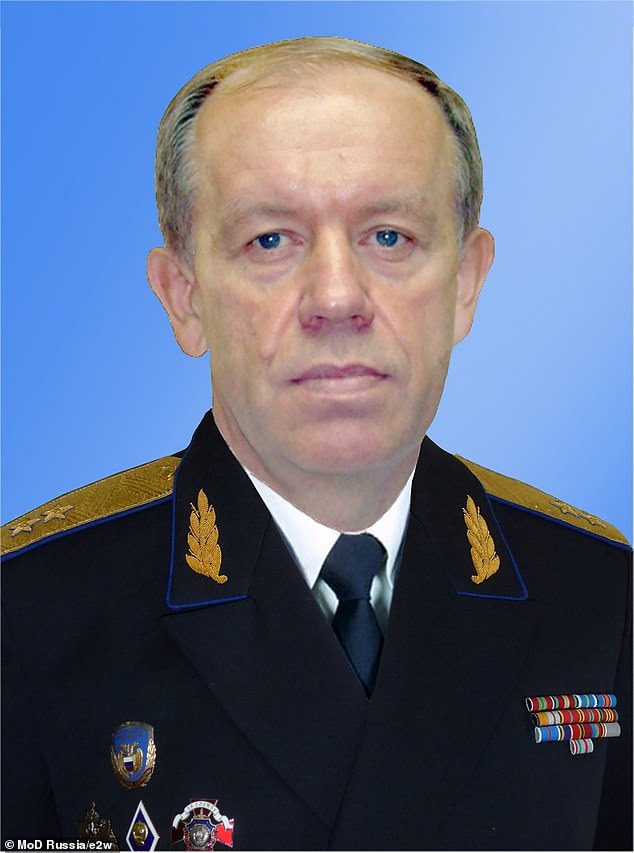
However, it was the investigative talents of Alexei Navalny that brought Ex-Kremlin Security Chief Gennady Lopyrev and the mysterious Gelendzhik Palace into the glaring spotlight. Navalny’s revelations, likening Putin’s residence to that of a classic “Bond villain,” triggered a series of events that ultimately resulted in the removal of Putin’s former bodyguard from his post. In a surprising turn of events, Ex-Kremlin Security Chief Gennady Lopyrev himself was sentenced to a ten-year prison term in 2017, after being found guilty of involvement in a bribery scheme. This marked a dramatic downfall for a once-prominent figure in the realm of Russian security and power.
The reason why he was kept in prison
As per the Federal Penitentiary Service’s account, the passing of Lopyrev is linked to a specific ailment. However, as reported by The Moscow Times, the commander didn’t voice any health concerns and was actively preparing for his potential release on parole.

Back in 2017, Ex-Kremlin Security Chief Gennady Lopyrev received a ten-year prison sentence on charges related to accepting a bribe exceeding six million rubles and possessing firearms illegally. It was disclosed that during the search, an additional one billion rubles were discovered in his possession.
Lopyrev held the responsibility of safeguarding government facilities in the southern region of the country and oversaw the allocation of funds for the construction of a Black Sea coastal residence in Gelendzhik. This residence, as per Alexei Navalny’s investigative team, was purportedly intended for the Russian President’s leisure activities.
Ex-Kremlin Security Chief Gennady Lopyrev’s Health Condition
According to The Moscow Times’ Russian-language service, Lopyrev was in the process of preparing for his parole and had no known medical conditions on record. However, during his hospitalization, shocking news emerged: he was diagnosed with leukemia, a condition that had gone undetected despite initial tests conducted upon his admission, which had shown no signs of any abnormalities.
Adding to the intrigue surrounding Lopyrev’s situation, Dmitry Kolezev, a prominent Russian journalist, raised some intriguing speculation in a Telegram post. Kolezev suggested that Lopyrev’s former role as the head of the Federal Security Service (FSO) in the Caucasus could have given him access to sensitive information regarding the intricate details of President Putin’s lavish palace in Gelendzhik.
This revelation raises questions about the circumstances surrounding Lopyrev’s sudden medical diagnosis and the potential link, if any, to his past role in the FSO. The possibility of sensitive information being involved adds another layer of complexity to an already mysterious situation.
Medical Treatment for Gennady Lopyrev
A prisoner named Guram Svanidze, who was held at Gldani Prison No. 12 and was receiving medical treatment for a head injury, has tragically passed away. The deceased’s kin have confirmed this information.
The incident took place on August 20 in the corridor of the Center for Mental Health and Drug Prevention. According to investigators, the prisoner Svanidze approached a guard and managed to remove the guard’s service weapon from its holster. Subsequently, he discharged several rounds, one of which struck him in the head. The guard has been charged with negligence in relation to the incident.
Following the shooting, Svanidze underwent surgery and was placed on a ventilator for several days.
The Special Investigation Service released video footage from surveillance cameras installed in the hallway of the Mental Health Centre on Kavtaradze Street in Tbilisi shortly after the incident. The video depicts a young individual approaching the guard from behind, discreetly extracting a firearm from the guard’s holster, and subsequently discharging several shots, one of which struck the room.
The family of the prisoner is disputing the investigation’s account, asserting that the young man seen in the video bears no resemblance to Guram Svanidze. They do not accept the investigation’s version of events.
What was the cause of Gennady Lopyrev Death?
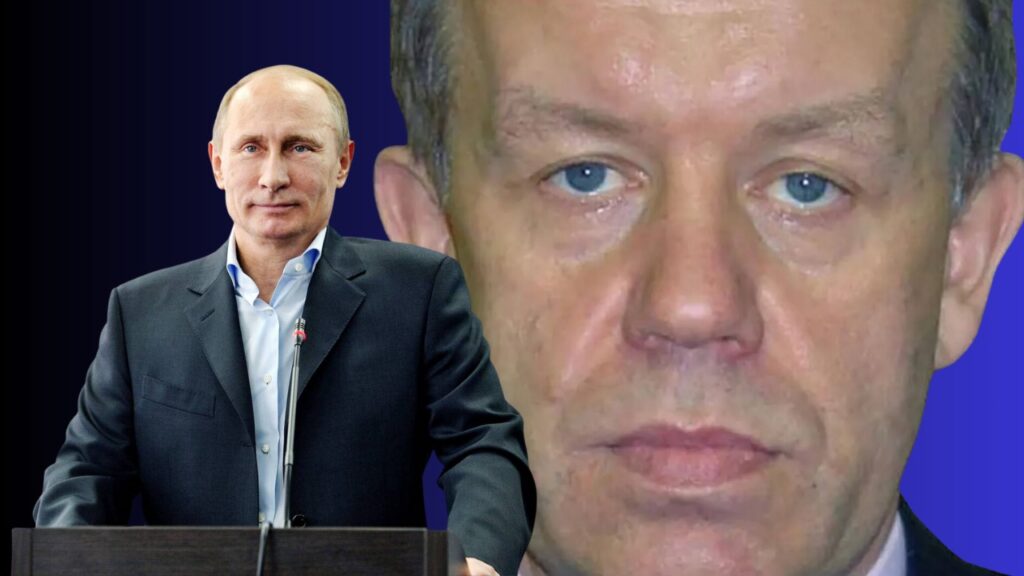
The Federal Penitentiary Service has provided information that identifies a specific medical issue as Lopyrev’s cause of death. The general, according to The Moscow Times, had been actively preparing for his parole release and had not expressed any health concerns. Alexander, the son of Gennady Lopyrev, shared the final days of his father’s life at the correctional facility with Cheka-OGPU. He explained that the person responsible for overseeing Putin’s residence had been in good health, maintaining a healthy lifestyle, and actively working towards securing parole. Nevertheless, his health unexpectedly deteriorated to such an extent that doctors struggled to provide a diagnosis for an extended period of time.
Other mysterious Russian deaths or attacks surrounding Putin
Boris Nemtsov
In 2015, Boris Nemtsov, a prominent Russian opposition figure known for his strong criticism of the Putin administration, was fatally shot in an assault that took place on a bridge within sight of the Kremlin.
- He met his demise just a few days prior to his scheduled leadership of an uncommon public demonstration against Russia’s takeover of Ukraine’s Crimean area and its backing of separatist activities in eastern Ukraine’s Donbas region.
- The Kremlin disavowed any participation, while in 2017, a Russian court found five individuals guilty of Nemtsov’s murder in a trial that his family labeled as an attempt to conceal the truth.
- In the years that followed, it came to light that a government agent working with a group that carried out assassinations had been closely watching him in the months before his death.
Alexei Navalny
The leader of the opposition, Navalny, who is currently incarcerated for approximately three decades, was poisoned in August 2020 using a potent nerve agent known as Novichok, a product of Soviet Union’s research and development.
- The Kremlin claimed no responsibility, but later inquiries conducted by Bellingcat revealed that the individuals behind the assault were affiliated with Russia’s Federal Security Service (FSB) and that the decision to poison him had come from the highest levels of the Kremlin.
Alexander Litvinenko:
In 2006, Litvinenko, a former KGB agent turned whistleblower, passed away in the United Kingdom as a result of poisoning with a scarce and extremely radioactive substance known as polonium-210.
- Once more, Russia has refused any participation, yet both the United Kingdom and the European Court of Human Rights have reached the determination that Russia likely played a role. The UK investigation even went as far as suggesting that Putin “likely sanctioned” the assassination of Litvinenko.
- One of the indications suggesting the Kremlin’s participation is the observation that nearly all the global supply of polonium-210 originates from state-managed nuclear facilities in Russia, where nuclear authorities have emphasized strict oversight over access to this element.
Sergei Skripal:
In 2018, Skripal, a former Russian intelligence operative residing in the United Kingdom, along with his daughter, fell victim to an assault in Salisbury. They were targeted with a nerve agent that bore a resemblance to the substance employed in the attack against Navalny.
- Skripal and his daughter managed to survive, but a British citizen lost their life, and several others were harmed when they encountered a perfume container suspected to be linked to the incident.
- The United States, the United Kingdom, and several other countries have jointly determined that individuals affiliated with the Russian military intelligence agency were responsible for the poisonings. Furthermore, the United Kingdom has formally accused three members of this agency in connection with the incidents.
Yuri Shchekochikhin:
In July 2003, Russian investigative journalist and liberal lawmaker Shchekochikhin experienced a sudden illness and passed away. Doctors at a hospital associated with the Kremlin stated at the time that his cause of death was attributed to a severe allergic reaction.
- His family members have reported that Shchekochikhin endured a harrowing 12-day period characterized by excruciating pain, during which his skin progressively peeled off, his hair fell out, and his organs suffered successive failures.
- When they requested access to Shchekochikhin’s medical records, medical professionals informed his family that these documents were being held by prosecutors, citing them as a “medical secret.” This was in relation to an investigation that would not be initiated until several years later.
- In the years leading up to his demise, Shchekochikhin had published investigative reports exposing a smuggling operation, money laundering activities, and a corruption scandal involving high-ranking FSB (Federal Security Service) agents.
- Additionally, he had been delving into the potential involvement of the FSB in the 1999 Moscow apartment bombings, an event that played a part in triggering the Second Chechen War.
Anna Politkovskaya
In October 2006, Anna Politkovskaya, a Russian journalist and advocate for human rights, was fatally shot in her residence located in Moscow.
- She had documented human rights abuses during the Second Chechen War and authored a book in 2004, asserting that Putin, via the FSB, was suppressing civil liberties to steer the nation toward a Soviet-style dictatorship before she passed away.
- In 2014, a Moscow court convicted five men for her murder, but the identity of the individual who ordered her assassination was never determined.
Multiple Russian oligarchs and executives also died :
According to a report from The New York Times, a number of prominent Russian oligarchs and high-ranking executives have met untimely deaths in perplexing circumstances, including suicides and accidents, since the commencement of Russia’s invasion of Ukraine.
- Ravil Maganov, who held the position of Chairman of the Board at Lukoil, a prominent Russian conglomerate, experienced a tragic and unexpected demise in September 2022. This unfortunate incident occurred when he fell from a hospital window in Moscow. The circumstances surrounding his death garnered significant attention and controversy in Russia and beyond.
- Russian media initially reported that Ravil Maganov had taken his own life, implying that it was a case of suicide. However, in response to these reports, Lukoil released an official statement following his passing. According to the company’s statement, Maganov did not succumb to suicide but rather passed away as a result of a severe illness.
- The sudden and perplexing nature of Maganov’s death, along with the contrasting narratives presented by the media and Lukoil, added an extra layer of complexity to this tragic event. It raised questions and speculation within both the business community and the public, leaving many seeking further information and clarity about the circumstances surrounding the loss of a key figure in one of Russia’s largest private corporations.




